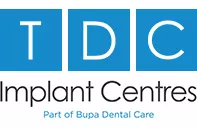We aim to provide you with information that helps you make the best treatment decisions. In this section, we provide useful articles to answer the questions we are often asked, and tell you more about the award-winning TDC team.
Can I get implants with gum disease?

“You can have dental implants if you have gum disease” says TDC Implant Centres Lead Surgeon, Dr Michael Zybutz.
“Unfortunately, many of our patients have been incorrectly told gum disease or bone loss makes them unsuitable for dental implant surgery.
So they suffer unnecessarily with missing and loose teeth, or uncomfortable dentures.
They live with constant dental pain, unable to eat certain foods for fear of further loosening or tooth loss and, sadly, too self-conscious to smile.
They come to us as a last hope, asking: ”I have gum disease, can I have implants?”
When Anthony (Dr Anthony Zybutz, Lead Dentist) and I tell them we can safely restore full sets of fixed teeth on implants, restoring their smiles and self-confidence in a matter of hours, it’s a huge relief for them.”
What is gum disease?
Gum disease develops when the soft gum tissue and bone surrounding your teeth become infected. Gingivitis is the early form of gum disease, occurring when there’s a build-up of plaque (deposits of bacteria) on the teeth.
If untreated, the plaque can spread beneath the gum line and develop into a more advanced gum disease called periodontitis or periodontal disease.
What causes gum disease?
The leading cause of gum disease is plaque build-up, usually caused by an inadequate oral hygiene routine.
Smoking is another known cause, and hereditary illnesses can be a factor.
It’s estimated that 90% of the UK population have some level of gum disease*, with many unaware they have it in the early stages.
According to the American Academy of Periodontology (AAP); “Gum disease is often silent, meaning symptoms may not appear until the advanced stages.”
Can you prevent gum disease?
“People don’t realise the consequences of poor oral hygiene and not caring properly for their teeth” says Dr Michael.
“Just two minutes of brushing teeth twice a day using a fluoride toothpaste keeps your mouth healthy, reducing your chances of developing gum disease. It can save years of pain, worry and a lot of expense.
Flossing as part of your daily oral hygiene routine is highly recommended to ensure all parts of the teeth are properly cleaned.
Dental floss and interdental brushes can reach the small spaces between your teeth and around the gum line.”
How is gum disease treated?
How you treat gum disease varies by patient.
It’s important to have regular check-ups with a dental professional as they can catch any issues and advise on the best gum disease treatments for you.
Gingivitis is usually reversible with a good at-home oral hygiene routine (diabetes and pregnancy can affect how well the body can reverse the effects of gum disease); your dentist or hygienist can offer advice regarding flossing and brushing.
People more severely affected with periodontal disease, may require antibiotics or surgical solutions such as dental implants.
However bad you think the condition of your gums may be, don’t put off seeking help. Your dentist can advise the best treatment options.
Why is gum disease serious?
In the early stages of gum disease (gingivitis), key symptoms are bleeding gums when brushed, and the gum tissue becoming swollen and sore.
Additional symptoms include bad breath and an unpleasant taste in the mouth.
Left untreated, gum disease can advance to periodontitis (periodontal disease) which is more serious as the gums shrink and jawbone density can become reduced.
Eventually the receding gums and bone can no longer support your teeth, so they become loose and can even result in tooth loss.
And there are wider implications for your health: “Periodontal disease can be linked to stroke, heart disease, diabetes and other chronic illnesses,” say the AAP.
Can you get dental implants if you have gum disease?
At TDC we use an advanced, highly skilled technique called Smile in a Day, where dental implants and a first full set of fixed teeth are placed on the same day.
The treatment is suitable even for people with severe gum disease.
When performed by a suitably experienced dental surgeon, the procedure solves all the problems associated with gum disease, loose and missing teeth.
As well as new teeth that look and function like natural teeth, gum infection is eliminated, and oral health restored.
Can I have dental implants if I have bone loss?
Yes, TDC Smile in a Day is suitable for replacing lost teeth for patients with extreme bone loss.
The implants, (usually four per jaw – the technique is sometimes referred to as “All on Four”), are placed at very precise angles, making use of the maximum amount of available jawbone, even if there’s loss of bone density. In most cases bone graft surgery is not needed.
Occasionally patients have specific medical or dental needs that require additional treatment such as zygomatic (cheekbone) implants.
Even with zygomatic implants, the procedure can be carried out on the same day.
How is Smile in a Day different from traditional implant treatments?
With traditional dental implants, treatment involves more stages, often requiring additional surgical procedures such as tooth extractions and bone grafts, and many more months of healing time.
Smile in a Day is an advanced, less invasive implant placement technique, condensing multiple steps into much-reduced overall treatment time.
We extract any necessary teeth, place the dental implants (they replace your natural tooth roots) and fixed new teeth on the same day.
Patients arrive with loose and missing teeth and leave with full sets of teeth securely fixed on dental implants, beautiful new smiles and renewed confidence.
Your new teeth remain in place for about three months, night and day, to allow the bone to integrate with the implants and for your gums to settle. There is no need to wear a removable denture during this healing period.
The first set of teeth is then exchanged for the final, long-lasting set, crafted to give you the perfect fit.
Can any dentist perform Smile in a Day?
Whilst any qualified dentist registered with the General Dental Council can legally place dental implants, it is important to find a dentist with the skill and experience to safely deliver the clinical and aesthetic results you hope for.
All surgical procedures carry some risk, so it’s especially important when considering advanced, more complex, dental treatments such as same-day dental implants.
TDC Implant Centres have focused on dental implant treatment, specifically Smile in a Day same-day dental implants, since 2010.
The majority of our patients require at least one full jaw of teeth restored on implants (often both).
Under the clinical care of Drs Michael and Anthony and their teams, we routinely help the most complex cases.
Specialist periodontal care
The AAP describe a periodontist as “a dentist who specializes in the prevention, diagnosis, and treatment of periodontal disease … and in the placement of dental implants.”
Dr Michael is a UK-registered specialist periodontist with over 25 years’ experience.
To qualify as a specialist, dentists must be registered with the General Dental Council (GDC) and demonstrate proven additional training, qualifications and experience in their specialist field.
As Dr Michael specialises in the area of dentistry concerning the gums, jawbone and dental implant placement, our patients are often referred to us by general dentists, as well as patients who refer themselves.
Gum disease and bone loss are not barriers to dental implant treatment
“So many people come to us believing their gum disease and jawbone loss means they’re destined for a lifetime of dental pain, uncomfortable dentures and avoiding certain foods – and struggling with self-confidence as they’re embarrassed to show their smile,” says Dr Anthony.
“We founded TDC Implant Centres specifically to help these people.
We know Smile in a Day implants offer a life-changing solution.
Whatever the reasons for your problems, we’ll help find the right tooth replacement options for you.
Just take the first step – come and see us. We will never make you feel judged.”
Risks factors for dental implants
Dental implants are a proven and long-lasting fixed solution to loose and missing teeth, and dentures, and at TDC we are very proud of our consistently outstanding results and success rates.
It should be noted that all implant treatment carries a risk of failure and gum disease can be a risk factor. The key risk factors are as follows:
· Gum disease (especially untreated): Please note that gum disease is completely treated when all teeth are extracted before the implants are placed.
At TDC, we highly recommend attending regular hygiene appointments after treatment is completed so any issues can be identified before any potential issues become serious.
· Poor oral hygiene: Well cared for dental implants can last a lifetime, just like natural teeth.
Once the dental implant treatment is complete, it is the responsibility of the patient to look after their new teeth on implants – a good and regular at-home dental hygiene routine is vital.
At TDC we provide you with all the information you need to ensure you can keep your new teeth in the best possible condition.
· Smoking: smoking is not a barrier to having dental implants, but studies have shown that overall success rates are lower than with non-smokers.
However, nicotine constricts your blood vessels, depriving the tissue in your mouth of oxygen and nutrients, and also reduces saliva flow, all of which slow down the healing process.
Smoking also lowers your immunity and ability to fight infection.
· Diabetes (uncontrolled): Uncontrolled diabetes can reduce implant success rates as patients are more susceptible to infections, thereby affecting healing time and the ability to heal well.
The risk of dental implant failure is lowered when the diabetes is controlled.
Book your free consultation
If you worry about loosening teeth, tooth loss or gum recession, and would like to understand if you could be a suitable candidate for dental implants after gum disease, we offer a free initial consultation with one of our experienced implant dentists.
Simply request your free consultation or call 0800 012 2086 to speak with one of our friendly Patient Advisors.
Caring for your Smile in a Day dental implants
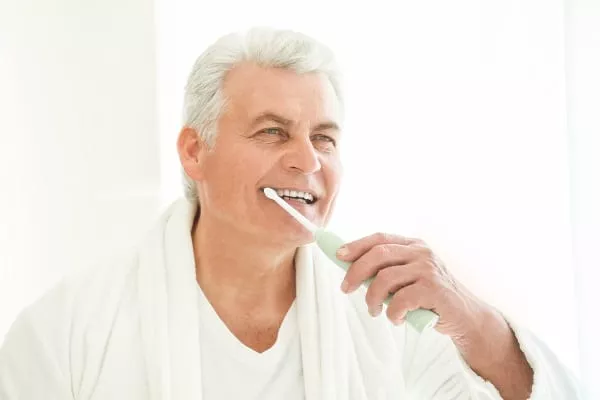
Good quality, well-placed dental implants can literally be life-changing – all the problems associated with dentures or loose and missing teeth are swept away.
Your new teeth are securely fixed onto the implants (titanium screws that are inserted into your jawbone to replace your natural tooth root) so they never move.
You can bite and chew normally again, meaning that you can eat, taste and enjoy any food you want without worrying about slipping dentures or loose teeth – including crunchy apples, meat, nuts and corn on the cob.
Best of all, you can see a beautiful new smile when you look at your reflection in the mirror – you never need to feel self-conscious about your teeth again. Your self-confidence is restored.
One of the other key benefits of dental implants is that they preserve your bone and are thus a long-lasting solution – they can last a lifetime if they are well maintained.
“It’s important to understand that your new teeth need to be properly cared for to maximise their lifespan, just as you would expect to care for natural teeth,” says Total Dentalcare (TDC) Lead Dentist Dr Anthony Zybutz.
So how should I care for my dental implants?
People are often uncertain about how to care for dental implants.
At TDC we provide you with all the dental care information and advice you need to look after your new teeth, and advise the following key tips to keep your Smile in a Day implants in the best possible condition:
Maintain a really good-at home dental hygiene routine
Along with making sure your implants are placed by an experienced dental implant surgeon, making sure you follow an effective oral health care routine at home is the biggest factor in keeping them looking good and maximising their lifespan.
1. Use your electric toothbrush just as you would for natural teeth: this means for 2 minutes with the brush head half on the tooth and half on the prosthetic gum. Any toothpaste will do, but avoid overly abrasive toothpastes e.g. smoker’s toothpastes.
2. Next, replace the round brush head with the interdental brush head (we suggest Oral B, available on Amazon), and work along the natural gum line, both inside (or tongue side) and outside (lips and cheek side); try to push this bendy brush under the bridge areas.
3. Finally, at night, use your water pik to jet any debris that may have caught under the bridge areas. Remember to re-fill the reservoir (cordless water pik) three times for your upper set of teeth, and three times for your lower set of teeth.
4. Some patients can benefit from using super floss (floss with a spongy bit) especially in the easy to access areas under the back teeth.
Visit your implant dentist for regular check-ups
Once you have your permanent set of teeth and your treatment is complete, it is important to attend regular dental implant check-ups and hygiene appointments.
“At TDC, for most patients we recommend cleaning appointments every 3 to 4 months, and dental check-ups every 12 to 18 months so we can check all areas of your mouth and around the implants,” says Dr Anthony.
“It means we can monitor and maintain the health of your teeth and gums, just as we would with natural teeth.
We can advise you personally and identify any small issues before they become a serious problem. We also always complete a mouth cancer screening for total peace of mind.”
Stop smoking!
Whilst smoking doesn’t stop you from having dental implants placed, research has shown that the rate of implant failure is significantly higher for those who smoke than those who don’t. Of course, for general health reasons, everyone should attempt to stop smoking.
“At TDC we don’t judge our patients for smoking,” says Dr Anthony, “But we are honest about the implications it can have on the long-term success of their dental implant treatment.”
Nicotine constricts your blood vessels, depriving the tissue in your mouth of oxygen and nutrients. It also reduces saliva flow. All of these slow down the healing process. Smoking also lowers your immunity and ability to fight infection.
“It never ceases to amaze me as to how many patients use having dental implant therapy as the reason to stop smoking.
The majority realise that smoking has heavily contributed to their tooth loss and they just don’t want to go back there.”
So, if you are a smoker and are thinking about having dental implants – or have had implants placed – giving up smoking is good for both your general health and helping to make sure your implants last.
What can I eat with my new teeth?
Advanced, same-day dental implants such as Smile in a Day are known as “immediate loading”.
This means that temporary teeth are secured onto your implants on the day of surgery, so you do not have any gaps or have to wear a false teeth during the osseointegration phase (the period whilst your bone integrates with your dental implants).
These temporary teeth remain in place night and day until they are replaced, about three months later, for your final, permanent set of teeth with no more surgery and no more injections.
• Eating with your first set of fixed teeth
These are the new teeth that you get on the same day that your dental implants are placed.
They are made from a composite material to appear just like real teeth – however, we can design them any way you want, with smiles ranging from Simon Cowell white to completely natural.
Most patients choose something in between; a natural-looking, clean white smile.
Unlike false teeth that you often wear with traditional implant methods, they stay secured in place by the implants, 24 hours a day, for about 8-12 weeks whilst your bone integrates or heals with your implants.
Whilst you could easily bite into an apple on the actual day of dental implant surgery, we advise you to take things slowly when you are wearing your temporary set – you will be getting used to the feeling of having new teeth, and may feel nervous about chewing and biting and could easily bite your tongue or lips.
So, we recommend that you build up gradually and eat only foods that you can cut with a fork.
• Eating with your final, permanent fixed teeth
Your final permanent teeth are placed at a non-surgical appointment about 3 months after surgery.
These new teeth are also crafted from a high-quality composite material that is re-inforced with a titanium bar to combine optimum strength, durability and shock absorbency.
We start by taking new impressions to ensure that your new set fits to any gum shrinkage that has occurred. It then takes a few more appointments to check and let you approve your final smile before your final teeth are placed.
We make sure that the fit, function and appearance of your teeth are absolutely right.
Now you can eat any food you want – just as you would with natural teeth. You can bite and chew normally, and without worry. You can bite into those crisp apples, crunchy baguettes and mouthwatering steaks!
If you previously wore a denture, you’ll find that you can taste your food again as there is no bulky strap covering your palate.
Can my new teeth break?
At TDC we always use the highest quality materials for your treatment, but, just like natural teeth, the teeth on your implant bridge will be subject to wear and tear from daily grinding and chewing of normal foods.
This means that they can occasionally chip or break, but they can usually be easily and quickly repaired or replaced. This will not affect your implants which will still securely hold your new teeth in place.
Of course, do remember that your new teeth are not bionic, so just treat them like natural teeth.
We advise all our patients to use a night guard to protect your new teeth from the effects of clenching and grinding while you sleep.
What can happen if I don’t look after my new teeth on dental implants?
If natural teeth are neglected they can develop a covering of deposits. If left untreated, this can lead to gum tissue infection. This is just the same for dental implant teeth.
And, just as natural teeth can develop gum disease leading to the loss of the supporting bone over time, dental implants can develop a similar pattern of gradual bone loss if they are not kept clean with a good oral hygiene routine.
In severe cases this can lead to implant failure. So, it is important to understand that you need to commit to looking after your new teeth if you want your investment to last and to enjoy all the benefits of your restored teeth.
Caring for your new teeth is a team effort
At TDC, our dental teams have over 25 years’ experience placing dental implants, are leaders in the same-day dental implant technique, and you can be assured that we use only the best quality dental implants.
We know these factors deliver the best long-term results for our patients and have won multiple awards for our patient care and support – before, during and after implant treatment.
“Please remember,” says Dr Anthony, “That once your Smile in a Day dental implant treatment is complete, it is your responsibility to maintain your implant teeth.
We will work with you, but it is the quality of your personal oral hygiene routine and willingness to come for dentist and regular dental hygienist maintenance reviews that influences how long they last.
Continued care of your new implant teeth will assure their continuing health, aesthetics and function, just as with natural teeth.
Our patients always say that the results are life-changing – so taking care of your investment is a small price to pay for your beautiful new smile!”
Why not get in touch?
TDC have two UK-based dedicated implant centres in London Harley Street and Folkestone, where we offer our award-winning Smile in a Day same-day dental implant procedure.
For more information, including your suitability for Smile in a Day dental implant treatment and cost, book your free, no-obligation consultation* or call our highly trained Implant Patient Advisors on 020 3553 6415
The mouthwash myth
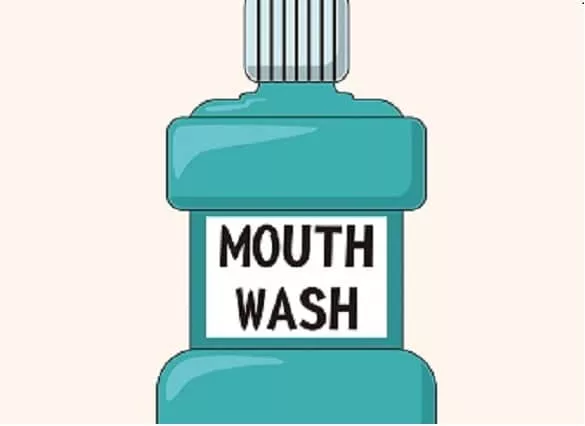
It was probably one of the year’s most shocking advertising slogans: ‘Corsodyl ‒ for people who spit blood when they brush.’
And the image on TV of a woman waking up and spitting her teeth into her hand has no doubt scared many people into using this well-known brand of mouthwash.
So why, then, did the Advertising Standards Authority (ASA) receive 20 complaints about this advert?
‘Quite simply, because it’s misleading,’ says Dr Michael Zybutz, registered gum specialist with the General Dental Council and Lead Surgeon at Total Dentalcare Implant Centres.
‘Bleeding is indeed often a sign of serious gum disease, but if your gums bleed you can’t rely on a mouthwash to combat that disease. The ASA didn’t uphold the complaints because what the advert is saying is in fact true ‒ but it’s only half the story.’
‘Yes, Corsodyl contains chlorhexidine digluconate and will stop your gums bleeding, but it isn’t going to help prevent or control periodontitis, gum disease that’s serious and that causes bone and tooth loss.’
According to research published in the Journal of Periodontology, the use of a mouthwash containing chlorhexidine digluconate has not been shown to be superior to effective manual oral hygiene, in other words, good old-fashioned brushing and flossing.
‘Using Corsodyl will mask the symptoms rather than tackle the disease itself,’ says Dr Zybutz, ‘and if your gums stop bleeding because you’ve been using mouthwash, you’re much less likely to consult a dentist about the problem.’
Proven ways to prevent gum disease
If mouthwash isn’t the answer, what should those of us who spit blood when we brush do instead? Firstly, don’t be tempted to self-diagnose or self-treat gum disease, warns Dr Zybutz.
‘If you’re worried about the health of your gums, visit your dentist, and if he or she diagnoses gum disease, insist on being referred to a periodontist (gum specialist). Gum disease is insidious as it’s not painful and takes a long time to develop so even dentists sometimes fail to spot it.’
If gum disease is diagnosed, you’re likely to be told to remove the factors causing it by cleaning your teeth regularly and thoroughly and visiting a dental hygienist for a professional clean. And if you smoke, you’ll be advised to quit.
‘Some dentists say that stopping smoking is even more important than cleaning your teeth ‒ and I’m one of them!’ says Dr Zybutz.
‘Smoking is the biggest known accelerator of gum disease because, among other things, it affects the blood supply to your gums and has a direct toxic effect on your body’s defences. It also means there’s less oxygen in your mouth which creates an environment that favours germs.’
Interestingly, it’s also important to make sure that if you have diabetes it’s under control: ‘People who have poorly managed diabetes have more gum disease,’ says Dr Zybutz, ‘and gum disease makes it more difficult to control diabetes, so your health will benefit in two ways if you take better care of your gums.’
Who should use mouthwash?
Dr Zybutz says that mouthwashes containing chlorhexidine digluconate can be very useful in the short term: ‘I recommend Corsodyl to patients after surgery as it’s antimicrobial and sticks to the gums for a long time so it’s great for killing bacteria.
However, if you use such mouthwashes for longer than four or five days there’s a risk of staining, you may start to get a metallic taste in your mouth and you may also find food tastes different. Most importantly, however, you’ll notice an increased accumulation of tartar (also known as calculus) which is brown and unsightly and will have to be removed by a dental hygienist.’
The bottom line? ‘I don’t generally recommend that my patients use mouthwash because to remove plaque properly you have to do the work,’ says Dr Zybutz.
‘If you insist on using mouthwash because it makes your mouth feel minty fresh, by all means do so, but remember that it’s not a substitute for cleaning them thoroughly. Make sure, too, that you choose one without alcohol and that contains fluoride ‒ the latter is especially important if you’re prone to tooth decay.’
If you’d like more advice on how to prevent or treat gum disease, or to find out more about our Smile in a Day same day dental implant treatment, get in touch for your free consultation* here, or call 020 3553 6415
To floss or not to floss?
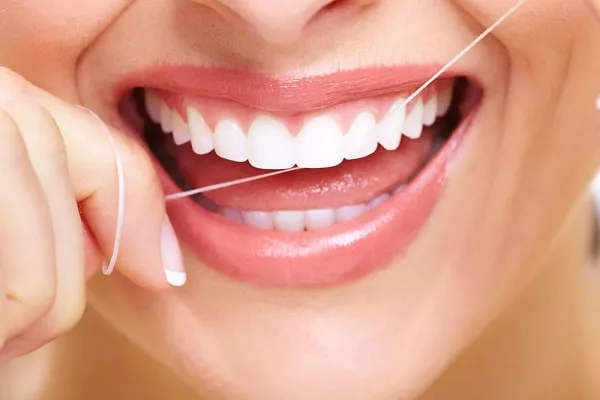
‘Medical benefits of dental floss unproven’ proclaimed recent newspaper headlines.
On reading that, the 79% of us Brits who’ve been conscientious flossers may have been forgiven for feeling a little aggrieved that we’d been wasting time that could have been better spent hitting our alarm’s snooze button.
But before you forgo the floss, consider what Dr Michael Zybutz, Lead Surgeon at Total Dentalcare Implant Centres, has to say:
‘I’ve been a dentist for over 25 years and when I do a plaque scan I can immediately tell if someone flosses their teeth or not, so I know for a fact that flossing is an effective way to clean your teeth.’
Seeing is believing
So what about the claims saying flossing hasn’t been studied properly?
‘No randomised, double-blind, placebo-controlled studies have been undertaken to prove that using a parachute prevents death if you jump out of a plane, and yet parachutes are used routinely!’ says Dr Zybutz.
‘The same goes for any number of medical procedures and preventative techniques such as dental flossing ‒ a very high level of proof is required to prove definitively that they work, but those kind of studies are very expensive and difficult to conduct, which is why they haven’t been done.’
‘Yes, more research is needed, but if you speak to dentists they’ll all advise you that caring for your teeth by keeping them clean (and not smoking) is the best way to prevent gum disease, and flossing is definitely effective at doing this, especially between the teeth.’
The benefits of flossing
The limited research that has been conducted into flossing, however, does show that it has proven benefits.
In one review of six trials, for example, it was found that when children had their teeth professionally flossed on schooldays for almost two years, there was a 40% reduction in the risk of cavities. And a Cochrane review revealed that regular tooth brushers and flossers had less gum bleeding than people who only brushed.
‘Bleeding gums can be a sign of gum disease, so anything that prevents this means you’re more likely to keep your teeth healthy,’ says Dr Zybutz.
Why flossing is vital
Flossing removes plaque, a collection of germs that forms a biofilm on teeth. It re-forms every 24 hours so we need to brush and floss every day to remove it.
‘Studies show that plaque is the primary cause of gum disease,’ warns Dr Zybutz.
‘If you leave plaque on your teeth for just 10 days, 100% of people will get gingivitis (red, swollen and bleeding gums), and gingivitis can, in most people, lead to periodontitis (inflammation of the supporting tissues of the teeth) which, over five to 20 years, leads to bone loss, tooth loosening and eventually teeth loss.’
‘Gingivitis is reversible and can be prevented by flossing, but periodontitis isn’t. What’s so worrying about the latter is that it’s not painful and takes a long time to develop, so many patients won’t even know they have it.’
Dr Wayne Aldredge, President of the American Academy of Periodontology, who recommends flossing to his patients even though there’s no rigorous evidence that it prevents periodontitis, agrees:
‘[Periodontitis is] a very insidious, slow, bone-melting disease,’ he says. Those who quit flossing are ‘rolling the dice” ‒ you don’t know if you’ll develop periodontal disease, and you can find out too late.’
Interdental brushes are often touted as an alternative to flossing but they have a downside cautions Dr Zybutz:
‘They tend to flatten the little “peaks” of gum between the teeth and create tiny black triangles that look unsightly, especially between your front teeth.’
In addition, not everyone has space to fit an interdental brush between all of their teeth ‒ sometimes the gaps are just too small.
Not all flosses are equal
Now that we’ve established the importance of flossing, what type of floss works best?
‘I recommend waxed or unwaxed floss,’ says Dr Zybutz. ‘I’d be wary of using Teflon floss which, although slippery and hence easier to use, doesn’t clean as well. If you’re having trouble flossing, or floss is catching on your teeth, book an appointment with your dentist so they can take a look at your fillings.’
‘Flossing technique is also very important, so make sure you see a dental hygienist who will show you how to floss properly and help you avoid floss cuts that can cause damage to your gums.’
If you’d like more advice on how to avoid or treat gum disease, or if you want to find out more about TDC Implant Centre’s Smile in a Day dental implant procedure, get in touch for your free consultation* here, or call 020 3553 6415.
Can you damage your dental implants?
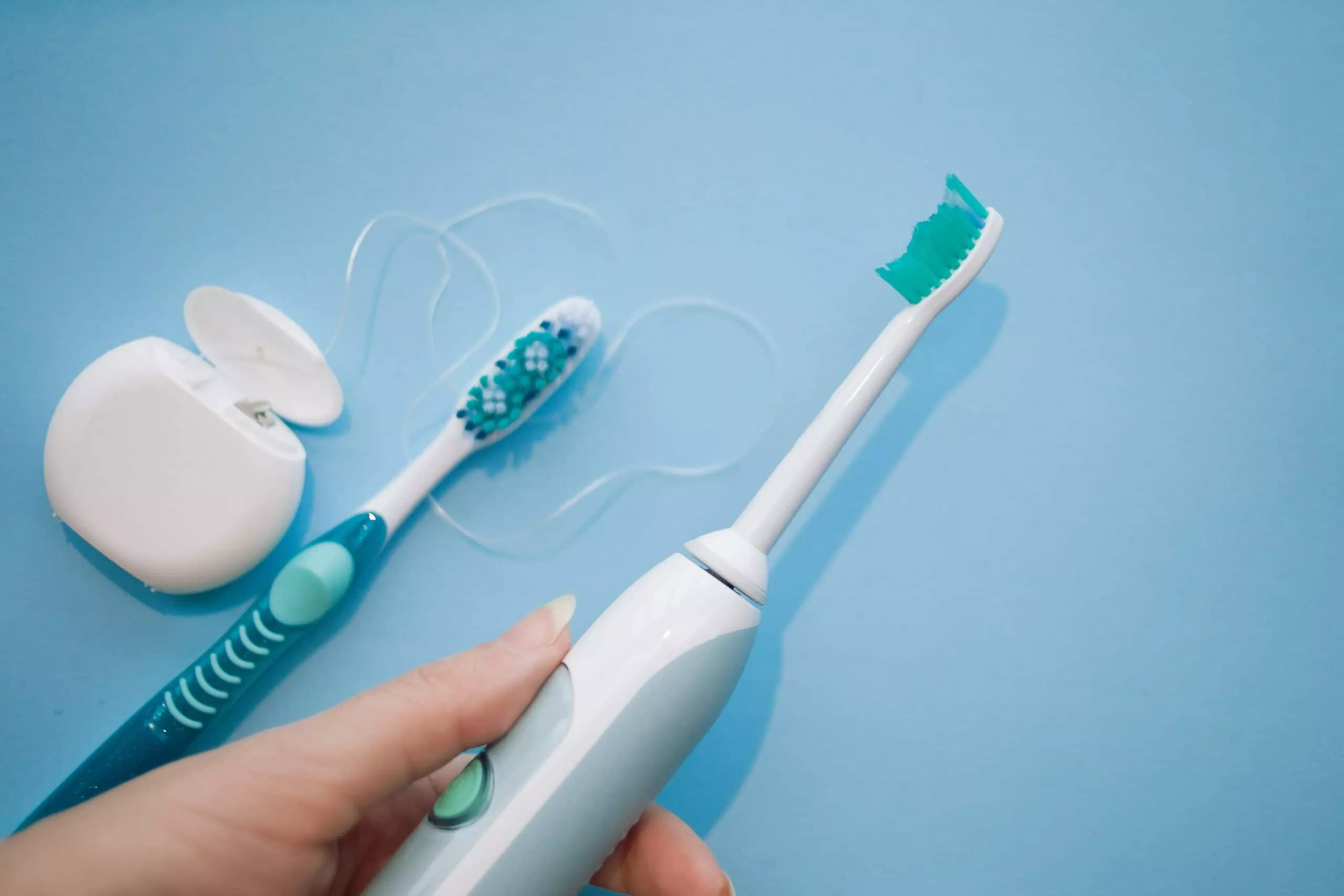
For many of our patients at TDC, having dental implants gives them a second chance. Perhaps they neglected their natural teeth to such a degree that eventually they had no choice but to replace them with implants. Or perhaps a bad experience with dental treatment at an early age was so scarring – physically or mentally –that they have avoided the dentist ever since.
Plus, there are plenty of less severe ways to damage your teeth – there are many habits that can harm your teeth. Coffee can stain natural teeth, for example, while very acidic drinks can cause lasting damage too.
No need to worry with implants?
Dental implants are still susceptible to damage if not cared for properly. We recommend visiting your hygienist regularly to polish away any discolouration caused by wine stains.
Teeth grinding can still be problematic if your natural teeth have been replaced by implants. Whether it’s because of stress, sleep apnoea, a side effect of medication or just the fact that you naturally grind your teeth, you will still need to protect your implants. We recommend using a night guard, as they are far easier to replace than your new teeth.
No replacement is as strong as your own original natural teeth, so it’s important to remember that dental implants don’t give you a superhuman bite. Chewing on paperclips, stripping wires with your new teeth, chewing on ice and nail biting can all still damage implants- and opening bottles with your teeth is definitely not recommended!
Can cleaning damage them?
Using almost any toothpaste is fine to use with implants. However, some pastes designed for smokers can be quite abrasive, so they are best avoided. They won’t cause major problems, but using abrasive paste could mean losing some of the surface texture on your implants, and this can spoil the natural look.
Which all means that dental implants are very much like natural teeth – they are vulnerable to many of the same things but if looked after well they can last a very long time.
To find out more about our Smile in a Day same-day dental implants treatment, get in touch for your free consultation*, or call 020 3553 6415.
